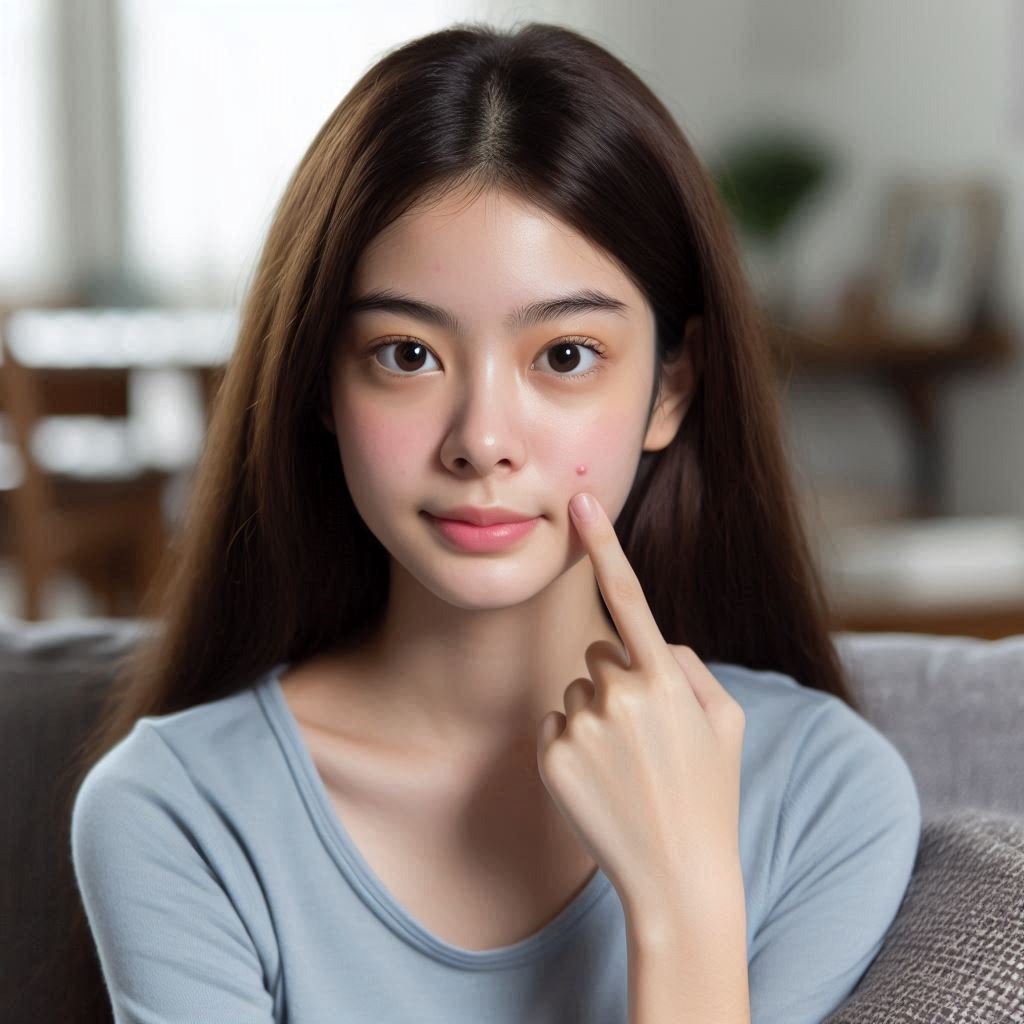
Adult acne affects 25% of all adult men and 50% of adult women at some time in their adult lives. People can develop unpleasant acne or have an acne recurrence in their 20s, 30s, 40s and beyond. It can be difficult to cope with no matter your age, and can cause depression and social anxiety. It can be difficult to cope with no matter your age, and can cause depression and social anxiety in an adult the same way it can in a teen. Male adult acne, Testosterone is the dominant hormone which is then converted to DHT resulting in prominent lesions throughout the skin. For most people, acne is characterised by occasional flare-ups of blackheads, pimples and pustules. Most often, these develop on the face, neck, upper chest, and/or the back. More severe forms can result in inflamed nodules and cysts with scarring. Acne is not caused by poor hygiene or oily skin – although both can make the problem much harder to control – rather, it is a condition of the sebaceous glands, which are attached to hair follicles and produce an oily substance called sebum. A spot forms when a hair follicle becomes plugged with sebum and dead cells.
Many cause of adult acne including Stress ,Bad cosmetics ,Hormones and medications. Acne that appears for the first time in adulthood should be examined by a dermatologist who can investigate the underlying cause. Some medications that can induce acne include anabolic steroids , some anti-epileptic medications, the anti-tuberculosis drugs isoniazid and rifampin, lithium and iodine-containing medications. Chronic physical pressure on the skin. Chafing from the straps of a backpack or tucking a violin between the jaw and chin can cause chronic physical pressure on the skin and may induce a condition known as acne mechanica. Chlorinated industrial chemicals. These may induce the occupational skin disorder known as chloracne. Metabolic conditions. Changes in the hormonal balance, such as those brought about by pregnancy, menstruation or hormonal abnormalities can induce acne. Teatment of Adult Acne
1. Azelaic acid cream.
2. Alpha-hydroxy acids (including glycolic acid, lactic acid, and gluconic acid).
3. Overall best treatment for adult acne is identical to the best treatment for teen acne, benzoyl peroxide.
4. Topical antibiotics (gels, lotions, and solutions)
5. Antibiotic pills (haphazard use may lead to antibiotic resistance)
6. Birth control pills for women
6. Accutane or Sotret for severe acne
Home Remedies of Adult Acne
1. Acne is often a hormonal problem, so you should check with your doctor to see what help he or she can offer you.
2. Eat lots of fresh fruits and vegetables each day so that you have your best opportunity to feel and look as attractive as possible. Try to avoid fried fatty foods and junk food.
3. Unusual amounts of stress and anxiety can cause your acne to get worse, so be sure to take time each day to relax and keep your stress levels down.
4. Daily exercise can help relieve some of that excess tension by getting your body moving rapidly.
5. As an adult you’ll want to avoid some of the products that are made just for teenagers. That’s because your skin is less elastic and some products that help a teenager’s skin to clear up are too drying for an adult’s skin.
6. Don’t forget about the numerous natural acne remedies that are available, such as apple cider vinegar and herbal remedies.
7. Women need to avoid spreading heavy makeup to cover their blemishes since all that will do is plug up your skin’s pores even more. Be sure to remove your makeup every night or else your acne will get even worse.
8. Avoid spreading bacteria.
9. Green tea is used as a traditional remedy for many diseases such as liver inflammation, gastric discomfort and Adult acne.




